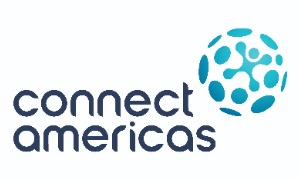Before meeting or making the first contact with a potential customer one should gather all the information there is to know about the industry being dealt with. It is advisable to read business publications to come up to speed with the latest industry trends and news. Research the market conditions for the product or service that you are offering and identify the needs of not only the customer, but of the competition, in order to evaluate the sector’s standards or trends. But always keep in mind that you will obtain the best information and assessment on issues concerning your customer by speaking directly to the client.
Active listening
Every new contact represents an opportunity to update the information one has about the potential customer, but it is not always easy to communicate effectively. There are several techniques that can help leverage this skill. According to PYMEX, active listening is a company’s most reliable source of information. It helps obtain first-hand information in multiple situations: through a call or visit to the customer to inquire about a new line of product or service; through complaints and criticism; praises over quality or efficiency, etc.
GestioPolis recommends avoiding making closed-ended questions, which can only be answered by a “yes” or a “no”. These questions usually start with the words “Is”, “Are”. Rather, try asking questions that start with “What”, “When”, “Where”, “How”, “Tell me” or “Why” since these typically compel the other person to provide more elaborate answers. The answers received will prompt conversation.
An open and transparent relationship creates a particular loyalty between the customer and the company. Another positive aspect of this exchange is that it generates a more in-depth knowledge of your own product or service and its market presence. It enables us to immediately identify if we are failing or if there is something we can improve.
Have a relationship management plan
Having a CRM (Customer Relationship Management) plan helps obtain useful and relevant information about the customer, or potential customers, in order to offer a more personalized and improved quality service. According to GestioPolis, there are expensive software programs that manage databases of this type, but for starters an Excel spreadsheet will be just as effective. The important thing is to begin recording information as soon as the first contact occurs and to follow through.
This will be useful for answering many of the questions surrounding customers and for preparing for the next call or meeting. Family and professional information as well as main interests, purchase behavior, meeting results, date of next contact, payment method, incidences, defects and solutions, etc. are some examples of useful information for providing better customer service.
Social Media
Potential customers tend to turn to social media to research products and services before acquiring them. Hence, they represent a valuable source of information for the company to learn about the customers’ consumer habits: opinions about the company, the product, the competition, new market trends, etc.
This not only enables close and direct contact between the company and its customers but it is also useful for identifying sales opportunities, weak points of the product or service offered and new market niches to be developed. According to CNN Expansión, having a community manager analyze and participate in social networks can be a very useful tool to gain valuable information on market trends, customer reviews, and other useful data.
Surveys
CNN Expansión indicates that the use of written questionnaires through Internet or telephone surveys to obtain more information about customers helps obtain excellent first-hand information. Ask your current customers to provide feedback about the level of satisfaction of the product or service that they have purchased.
Generally, if the client remains anonymous they will be more willing to provide honest answers in the survey, without fear of offending the supplier.
A survey can also be designed to deliver information about the business needs of prospective customers. When a current or potential customer answers a questionnaire, you will have gained more than the simple answers. The fact that they at least made the minimum effort will give you an idea of the interest in your product or service.



Follow Us